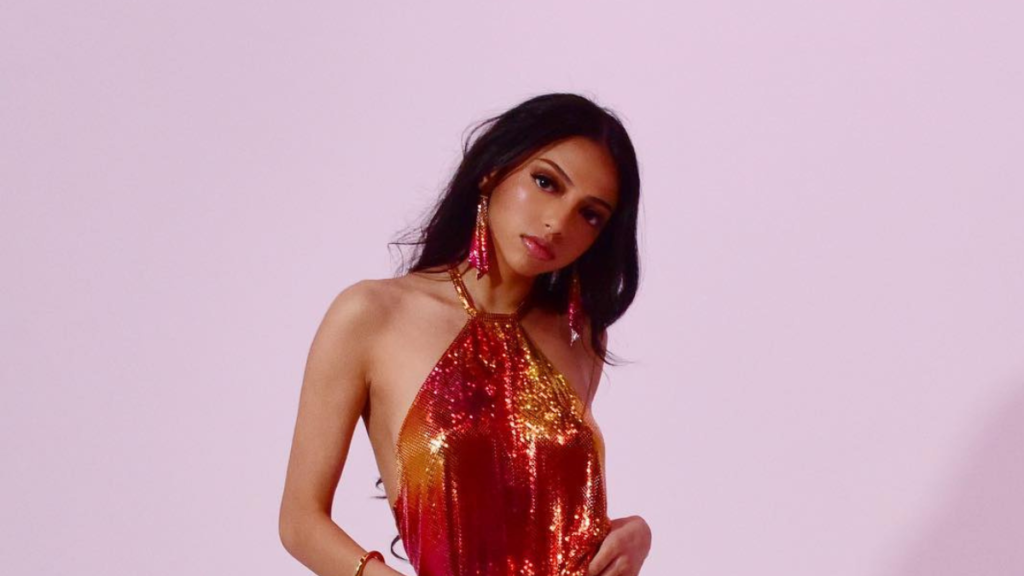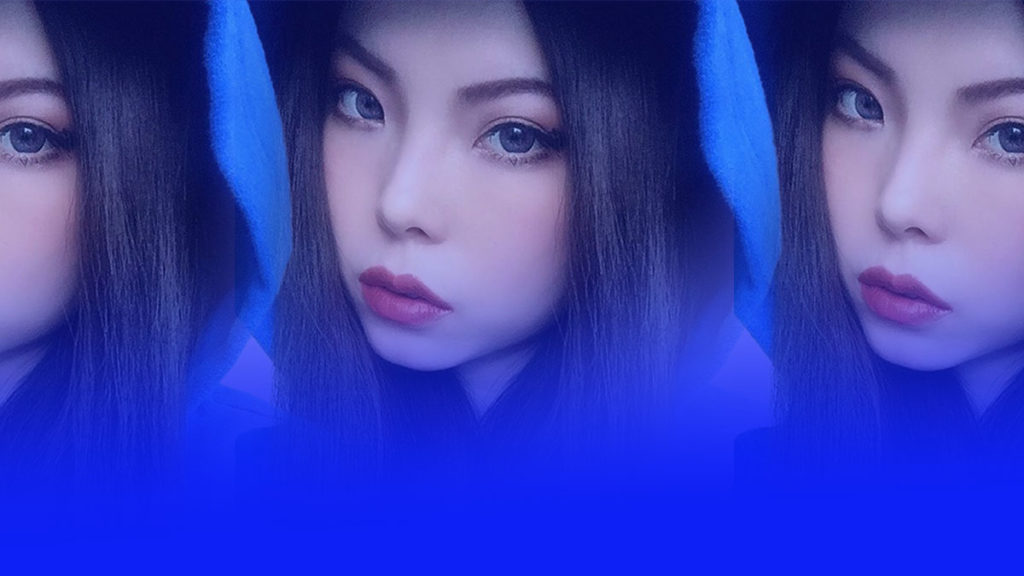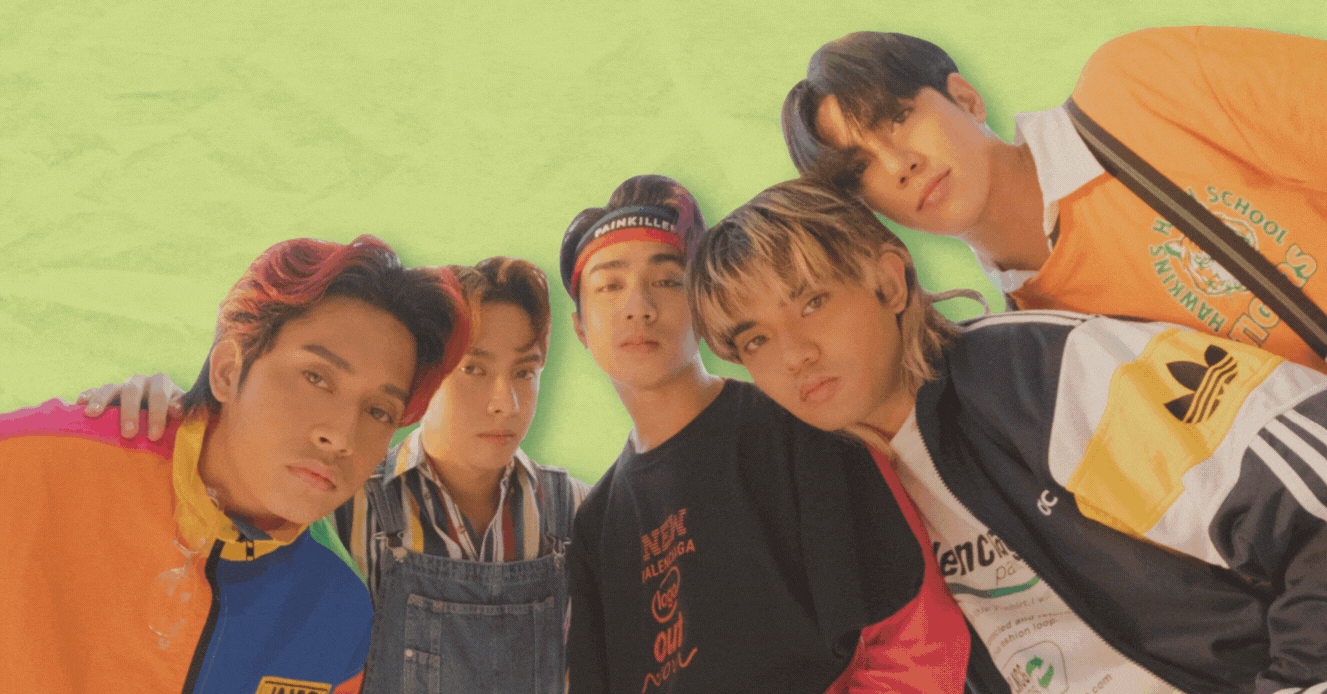Artist Spotlight: Culture and Music Through the Eyes of Saleka

Philadelphia-born artist Saleka is an up-and-coming R&B and jazz artist who differentiates herself by highlighting her culture and going out of her way to explore cultures outside of her own. She displays her Indian heritage with great pride; she is the daughter of a North Indian mother and a South Indian father. Her musical debut was in September 2020 with her single “Clarity” and released her first album Seance in May 2023.
EnVi hopped on a call with her via Zoom to talk all about her customs, family traditions, her musical journey, and future projects.
Culture and Identity
Although both sides of her family are Indian, they have different traditions, food, and religious holidays. Because of this, Saleka grew up with a mixture of family customs. In her life, she is reminded to be proud of her culture by her grandmother on her dad’s side. She told EnVi, “She lives six minutes away from me so I go and see her every day. She’s kept a lot of the culture in our family and made sure that we remembered things.” This connection is very important to her as it’s a big part of her life and identity.
Food is something she regards as a token of love within her family, and her grandmother makes sure to keep that alive. “I eat Indian food all the time, almost every day because my grandma is an incredible chef,” she shared. “Food is a way of love in my family and probably in a lot of my culture. You go over to someone’s house and they offer you chai and they offer you food and you accept it.”
Another way she celebrates her culture is through holidays. She enjoys Diwali, a celebration that symbolizes light over darkness. She and her immediate family don’t have a big Indian community nearby them to celebrate with, so they observe the holiday more simplistically. “We do a little puja (prayer) ceremony in our home and put candles in every room of the house next to the window[s],” she said. “We don’t really dive into the details of the religious aspect of it but it’s become an important symbolic event and moment to connect with the family.” Additionally, she has had the opportunity to include non-Indian friends in this celebration, which has been a special and important experience for her as this brings her loved ones into her world.
In the past, she’s had an up-and-down relationship with her culture. When she was young, she rejected her culture due to the lack of representation around her. “The school I went to, I was one of two Indian kids,” she said, “so it didn’t feel like there [were] other people that had similar experiences or similar parents or similar traditions. I just felt like if I were to show that to them I’d be weird.” Because of this, her culture was not part of her music until she grew older and learned to appreciate it. As of late, she’s been more open about her heritage and expressing that side of herself. She has even talked about her relationship with it through her music.
Musical Journey
Around the age of four, Saleka’s parents put her in classical piano classes. Her passion for music was evident even at a young age because she took her lessons seriously. Music was always a big part of her life, and she credits her piano teacher for educating her on the importance of practice and passion. For a few years, she was set on pursuing the classical avenue of music and even dreamt of going to a music conservatory. It wasn’t until she got to college when that dream transitioned into singing and then eventually, songwriting and producing.
She finally debuted as an artist in September 2020 and released her first album Seance in May. When asked what her favorite songs from her album are, she answered with “Fantasy” and “Graves” as these were indicative of where her mind was at the time. They also deal with womanhood and what it means to her. In addition, her groovy single “Samsara” is particularly special to her because she shot a music video for it with her team.
For Saleka, releasing music is anxiety-inducing, but the task of creating music itself is where she feels more at peace. “When I’m creating something [and I] have those moments where I’m like ‘Oh this is working I’m so excited about it,’ or it makes me feel something and I just like to sing it or I like to play it, those are the most exciting moments for me.” She thinks of herself as a solitary and introverted songwriter, but she’s learning to slowly become more vulnerable. People’s connections to her music and the art they make from it, such as paintings and choreography, motivate her to keep going.
One of the biggest goals she’s set for herself as a musician is to grow and expand. “[In] every project, I wanna find a new sonic way to express myself and just always expand that,” she told EnVi, “because I don’t wanna get stuck in one way of making music, especially coming from my culture, there’s so much richness in [the] musical background there that I have yet to explore and I want to keep making an effort to explore that.” She wants to stay rooted in R&B and jazz, but she would love to learn and draw from other cultures as well as her own. Currently, she is working on a new album and a project with her father. Despite not being able to share too many details, she assured fans she would be releasing new work by the end of next year. She also shared that in her next album, she’ll be incorporating more of her culture by adding sounds from tablas and sitars.
Advice for Future Artists
Despite still learning about music and the industry as a whole, she was pleased to share musical advice. “The things that make you unique and maybe make you weird or different are the most valuable things,” she started. “When I listen to an artist that I love, it’s the uniqueness and the individuality that makes me feel like I have permission to be my own individual self and feel okay with my own self. I think that was something that I have learned and am still learning, just to let go of trying to be accepted and liked and just be who I am. That [will] bring in those aspects of me that are different, like my culture and the music that I listened to growing up. Don’t try to hide those things”
In this day in age, it can be hard for an artist not to feel the pressure to fit in. Considering Saleka’s point of view, if one focuses on what makes them unique, they will have the chance to discover a balance between their preferences and what their audience will enjoy.
Want to learn about more WOC musicians? Check out our interview with Thai indie artist Numcha here.



